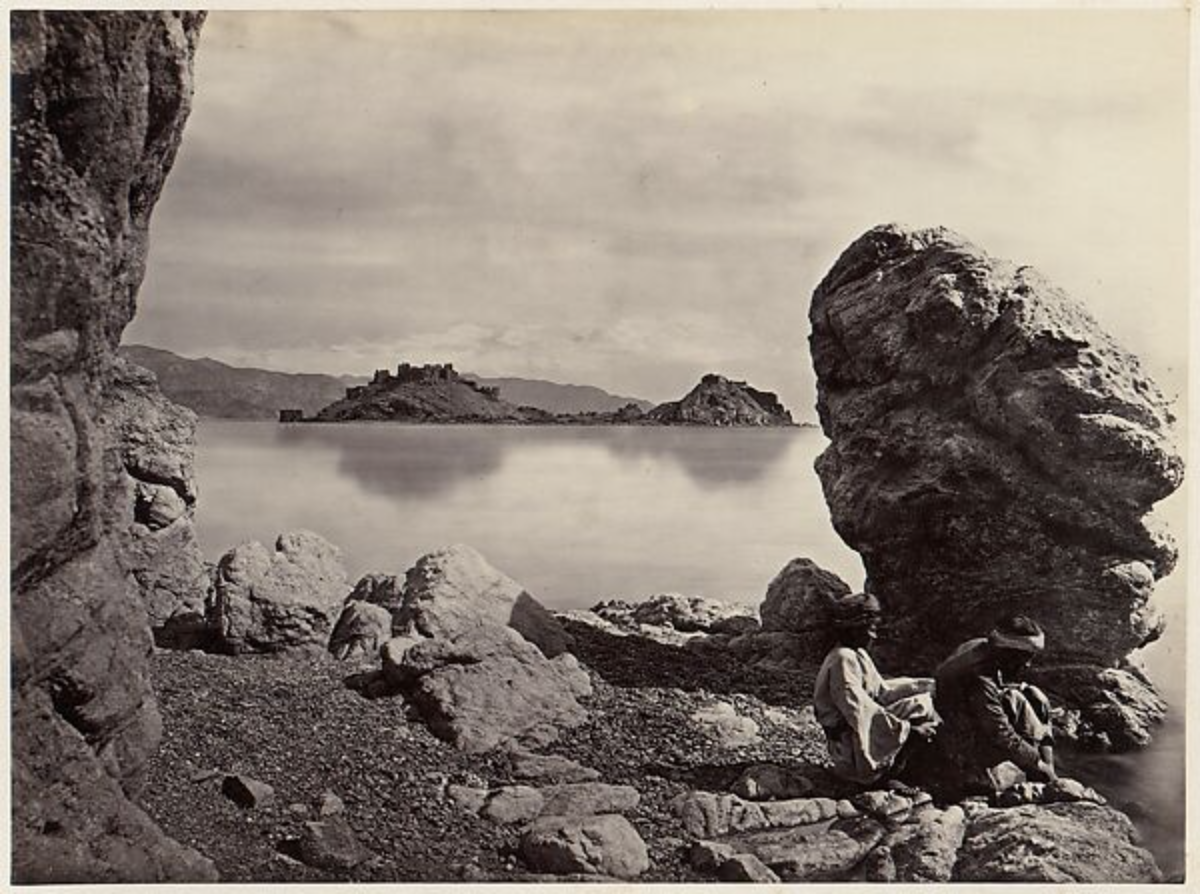Ungodly Psalms: Covenant of the Distant Cousins of Israel

Editor's note: this is the third poem in the series "Ungodly Psalms" by Joe Grim Feinberg. Don't miss the previous parts in this series, "Report from the Cowardly Scouts on the Condition of the Land" and "Ten Insubordinations."
Our god skipped out
on us
as we were leaving Egypt.
He said he had another place
to be,
some other people
in distress,
some army to
trip up as it
crossed
some marshy sea.
We waited
long,
but when He didn’t show
we left.
We went around
by dryland paths,
through all the wilderness
alone.
We passed Him
on a desert peak.
Looked up, and
there, His
smoke and light,
beside some bearded fellow
holding up some stone—
a lease of sorts, we heard
them say,
already signed—
we pitched our tents—
the beard guy rushed away.
He came back
hobbling, head down,
lease broken
in two.
The god turned to us,
fixed the stone, and said,
“Rights to a future land,
for usufruct in perpetuity—
I’ll offer it instead to you.”
His signature, already carved
into the stone
as one big X
(he wouldn’t use his name).
But when we questioned
His conditions,
strained our eyes
at the fine print,
called our lawyer back in Uptown Rameses,
asked around,
He kicked us off the mountaintop.
The other fellow signed
again
and left us there
to camp out on the unclaimed ground.
Under ungodly stars we
thought back to the times
when gods like this spoke softly
to the outcasts
and cast tempests
at the mansions’ gates.
Now only locusts chittered
us to sleep.
Years later we caught up with them,
the bearded fellow’s folks,
splashing across a river,
the same god at their head.
They blew their horns with glee,
declaring they were home, but
now they cried:
the land was occupied.
The deed to it was forged.
The whole damn deal—a scam!
And when they turned to Him
with their complaints,
He was gone again.
Left them to fight it out themselves
with the others in the land.
Who knows, maybe
He gave the same false deeds to everyone.
Come on, God, we said,
be at least a mensch, if not a man.
Later still we heard Him,
back to his old form,
hissing at thieving kings,
turning guards’ spears to snakes,
turning the dust to lice to crawl into the smart clothes
of the officers and goons.
But when the gathering crowd
realized who He was
and called out,
demanding
what He’d promised long ago,
He ghosted them again.
Someone had built a temple
and—knowing His pride—
they lured Him in. He settled down inside.
Only a priest came out,
his vestments outshining
a graying face
that cloaked itself in musty dark,
ash dripping
from his smoky beard,
his tongue full of commands.
“All deals henceforth,” he said
“will be with me.”
Now and then
rumors would spread
about some coming end,
when He would break out from His jail,
clear the smoke,
snatch flashes from the sky,
but we got tired of waiting.
Out here, below the temple steps,
we learned to whisper doomed
revolts
amongst ourselves.
We clamored hoarse, suspended
prophecies
and built ourselves,
an altar to refusal.
But keep the fire burning,
cousins,
will you?
For now, we’ve got our own affairs
to handle—
just keep our number close
in case
our god returns.





